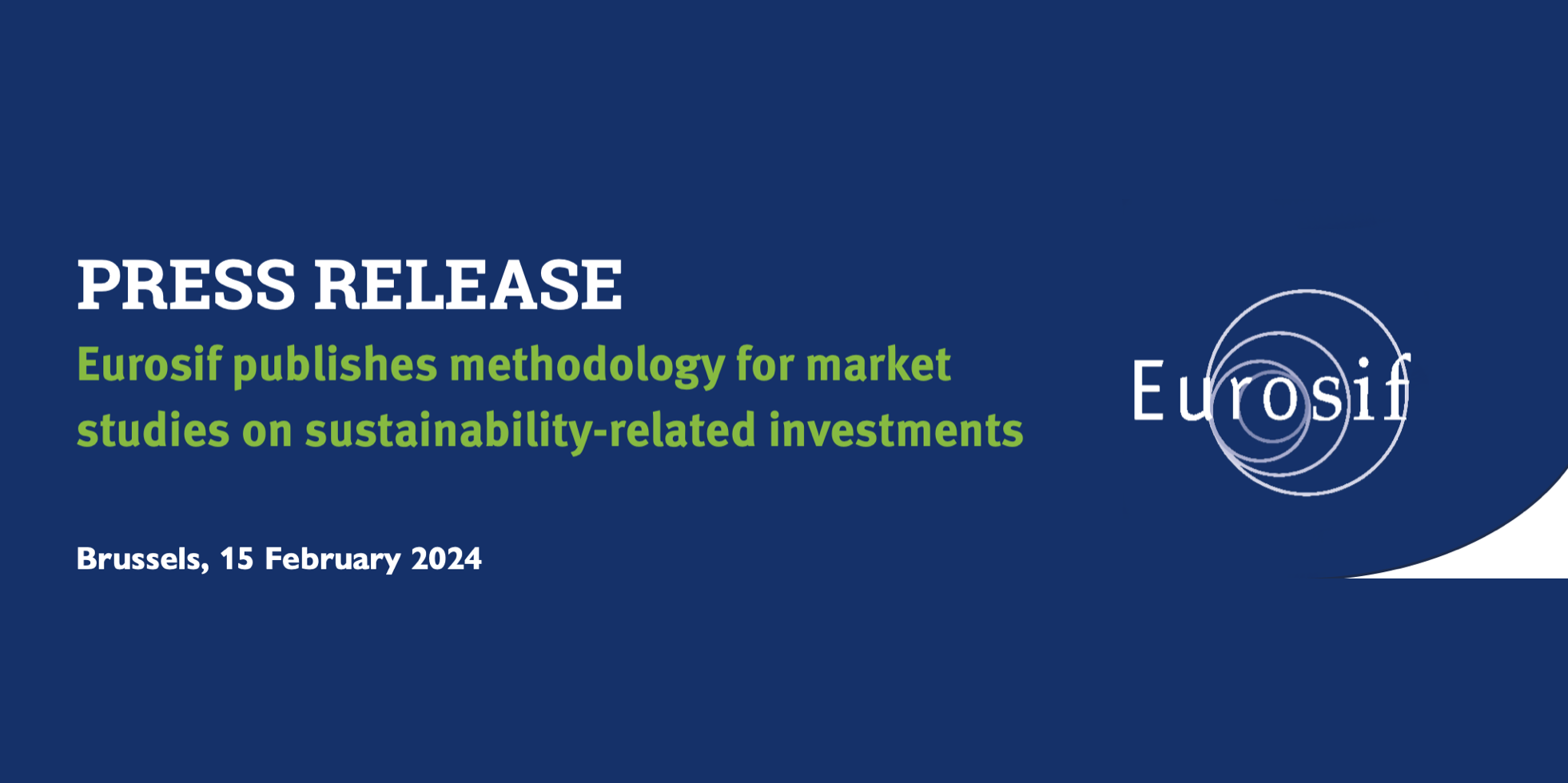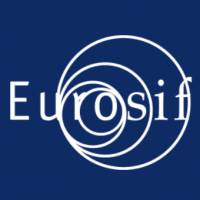Eurosif publishes methodology for market studies on sustainability-related investments
Eurosif today published a new methodology for the purpose of future market studies on sustainability-related investments across Europe.

The methodology and accompanying questionnaire are set out in a report explaining the approach taken, the proposed investment categories and its core features.
The methodology was developed over the course of 2023 by Eurosif’s SRI Study Group (SSG) in cooperation with Prof. Timo Busch from the University of Hamburg and Eric Pruessner from Advanced Impact Research (AIR). Market practitioners from across Europe were engaged in this process.
Past market studies on sustainability-related investments typically gathered data on a range of different sustainability-related investment approaches and aggregated them to one number of “sustainable investments”. However, these statistics did not differentiate between investments based on their investment strategy and/or objectives to actively support the transition towards a more sustainable economy which since the introduction and rollout of the EU sustainable finance framework is becoming an increasingly prominent feature of the European sustainable investment market.
The revised methodology is designed to reflect the evolving nature of the market and proposes four distinct categories of sustainability-related investments that reflect on the investments’ ambition level to actively contribute to the transition towards a more just and sustainable economy. These categories are: Basic ESG Investments, Advanced ESG Investments, Impact-aligned Investments, and Impact-generating Investments.
The methodology will serve as a basis for future market studies conducted by Eurosif in cooperation with its members. The methodology will be implemented over the course of 2024 with the first market study expected in 2025 covering the data for 2024. The methodology will also be available to all Sustainable Investment Forums globally and other stakeholders. This methodology is not intended to reflect the categorisations of sustainable products as established within regulatory frameworks, but to be sympathetic with such systems and labels as they emerge.
Commenting on the SRI Methodology, Prof. Timo Busch, said: “Today, an important industry question is: do sustainable investments make a difference? This is why there was a need to update the methodology for the purpose of market studies, putting impact at its core. The newly developed classification distinguishes between four different investment categories that measure how capital flows support the sustainable transition of the real economy, considering the impact of investments. I am very pleased to have contributed to the new methodology in collaboration with Eurosif and Eric Pruessner and I am sure it will add value to future market studies.”
Commenting on the publication of the SRI Methodology, Will Oulton, Eurosif Chair, said: “With the implementation of the EU SFDR and similar regulations across Europe, it was important to update the way sustainable and responsible investments are captured by Eurosif to reflect the current market environment. The new model will help the industry better track the flows across various investment strategies and will help policy makers in assessing whether they are achieving their sustainability related policy goals. I would like to thank everyone involved for the significant amount of work they have put in to deliver this new methodology."

